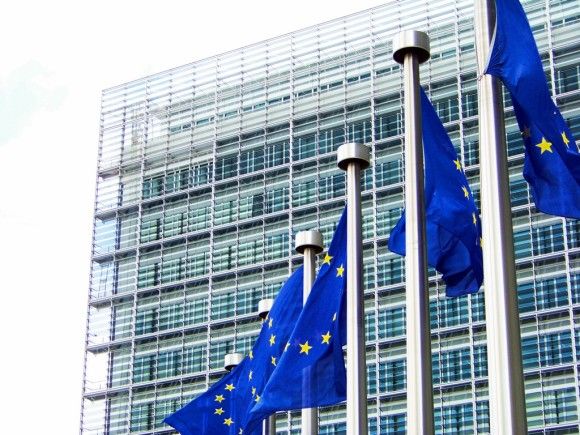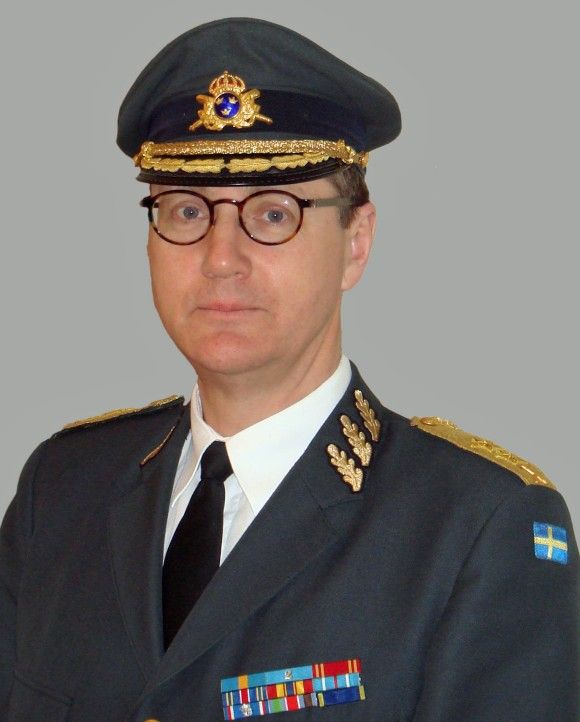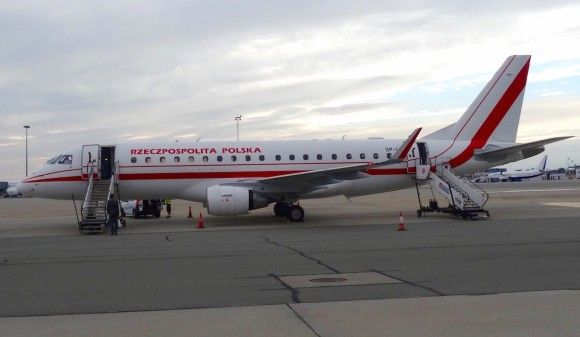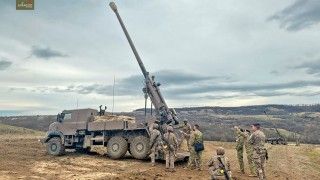- WIADOMOŚCI
25 years of the Polish Army in Free Poland
Politicians, experts, representatives of the defence industry and members of the public administration gathered together in Ożarów Mazowiecki to attend the „25 years of the Polish Army in Free Poland” seminar, which was organized by WB Group with support from the Polish President, Bronisław Komorowski. The meeting has offered an opportunity to discuss the key areas of the defence system of Poland, including professionalisation of the army or condition of the Polish arms industry. The discussion has proven that, even despite the deep transformation that happened throughout the last 25 years, Poland will have to solve many problems related to facing the largest challenge of the upcoming decade: modernization of the armed forces, which is to be focused mainly on replacement of the post-Soviet equipment with the state-of-the-art armament.
Polish Army Starts to Change
The Polish Armed Forces, since the dissolution of the Warsaw Pact, has transformed its forces, both in quantitative, as well as in qualitative dimension. General Bogusław Pacek, when opening the debate, recalled selected statistic data that was to show the changes that have happened since the early 1990s – including decrease in the number of soldiers from 410 000 down to 100 000 and decrease in the number of military units, from 4150 down to 1135. Despite the revolution in the Army that took place in the early 1990s, it was the Polish NATO membership that started in 1999 along with foreign deployments in Iraq and Afghanistan, that were a cause for a deep qualitative transformation – as Janusz Onyszkiewicz indicated. In his opinion, right after the communism had fallen, nobody believed that Poland could ever join the NATO structures. Many scenarios were considered, including a reform of the Warsaw Pact, democratisation and other options, but there was one common ground in between all the discussed options – the Western politicians claimed that Poland will never be a part of NATO, as ex-Minister of Defence recalled. Despite the initial failures on Poland’s way to join NATO, and on its way to find own place within the European security framework, Poland finally succeeded and joined the North Atlantic Treaty Organisation. The success of the initiiative stems from the fact that, in the eyes of the Polish ex-ambassador, Jerzy Maria Nowak, the Poles were able to effectively introduce a non-military Army control mechanism. In his opinion, among all the other ex-Warsaw Pact member states, Poland became the leader of the region, who may be easily compared, considering the armed forces, to the Western European countries.
Professionalsation – Ongoing Process
The key stage of army professionalisation was moving towards all-volunteer force – as general Skrzypczak stated. However, several serious mistakes have not been avoided. In opinion of the former Army Commander, the Polish Armed Forces have lost many valuable soldiers, and end of their careers was not “well-played”. The debate has been dominated by opinions that entering the NATO structures required a lot of hard work and that the Armed Forces needed to adapt to the new standards. It was a qualitative leap, and it soon turned out that the officers serving abroad, who were a part of international structures, represent a high level of effectiveness and their voice may be more relevant than the voices of other partners, who were acting within the allied forces at the time. Participation in the deployments itself made it possible to gain unique combat experience, which had a potential for future use, also to implement some changes in the Polish military.
The professionalisation of the army is not finished – General Jarosław Wierzcholski said – he states that moving towards all-volunteer force of the Polish Army may have come to an end, but the Army is not yet professional. In his opinion, despite all the changes made, the reform of the Armed Forces still needs some work to be done. Army needs to receive all the equipment it needs in order to fulfill the tasks demanded by the state. General Pacek stressed the fact that all the mistakes and errors made throughout the last 25 years could have been resulting from lack of satisfactory pre-decission analysis.
Research, Polonisation, Management? Problems related to the modernisation process
Large part of the conference has been devoted to the Armed Forces modernisation process, with a particular emphasis placed on the state defence industry. List of the problems, errors and lack of proper action within the scope of procurement of new armament – issue of which was raised by MEPs, experts and members of the Armed Forces – was very, very long. It is worth to recall the ones that were most vividly discussed: changes and lack of term consistency at subsequent stages of armament programmes, lack of transparency, not enough financial assets, personified decision-making path in the Ministry of Defence, lack of parliamentary control over the procurement process, lack of any specific defence doctrine, lack of strategy which would specify the long-term needs of the Armed Forces, lack of consistency of the Army and the MoD in the execution of the industry cooperation assumptions.
General Leszek Cwojdziński reminded everybody of an important issue – innovation-related spending is the key factor in modernisation of the army and progressive development of the defence industry. Currently Polish R&D budget is as much as 0,68% of the GDP. In Austria it is 2% of GDP, while in case of Benelux it is 4% of GDP. The Polish expenditure does not make it possible to create advanced armament development programmes. Without support offered from the state, the ambitious projects realized by the industry will not be successful. Lack of proper funding and lack of consistency in execution of the specific phases of the programmes can have only one result – breakdown of the development initiatives.
The speakers underlined the fact that Poland has no coherent vision or strategy, which would aim at creating a good, long-term development plan for the Armed Forces, which, in turn, has a detrimental impact on the status of the national defence industry. There is one question that needs to be asked: what technologies will be needed by Poland in order to maintain and modernize the equipment, which already has been acquired? It is worth to emphasise what gen. Bogusław Smólski said: it is wrong to create something that already exists abroad from scratch, here in Poland. In his opinion the industry fell into a trap of polonisation, which means that once given equipment is acquired, it is already obsolete, which will also limit any option of exporting the developed products. Rational way to be taken, is to invest in the latest state-of-the-art technology and to look for a niches for the Polish armament industry. Unfortunately, the extent of implementation of the latest technology varies in the Polish industry, and it is largely dependent on the potential of the individual companies. Introducing technologies in order to achieve “polonisation” may be disastrous, as the Polish Army would be only buyer here. Possible solutions? Realistic participation in modernization of the existing systems, and narrowing the fields of specialty, aiming at specific areas of defence technology, which may become a larger part of the global supply chain.
Armament Office – Is this a Remedy?
Polish Armed Forces modernisation programme has been going on for two years now. What are the results? Well, these are hardly noticeable due to the constant delays in execution of the aforesaid programme. Generał Skrzypczak stressed the fact that due to the delays the ambitious plan of modernization may collapse next year. And the reasons? The experts are certain, there are plenty: lack of properly trained human resources needed to realize the orders and create the technical requirements, lack of institutional and decision-making solution and lack of cooperation between the Ministry of Defence, the military and the industry. The solution proposed – creation of an Office of Armament, which would be responsible for coordination of procurement, in opinion of Robert Gwiazdowski from the Adam Smith Center, will not solve the problem of insufficient human resources. Gwiazdowski stressed the fact that any new act of law will not make it possible to involve the best professionals on the market in such institution. The panel participants agreed on the fact that a new organ will not solve the problem, if it is not going to be placed within a complex Armed Forces and industry planning system. Such solution will be effective should a certain level of independence is provided. Opinion emerged behind the scenes, that even if Poland would spend PLN 1 billion for such institution, the savings in the budget resulting from limitation of lack of competence, corruption and lack of decisive activities, would be very high, up to several billion zlotys.
“Wisła” Programme – All Errors in Focus
The conclusions stemming from realization of the “Wisła” medium range anti-missile-defence system programme were an important thread of the debate. Ludwik Dorn MEP indicated that the proceedings lack transparency. MEP Dorn stated that it is not acceptable that it is the Minister of Defence who selects the equipment, while the Council of Ministers only accepts the offset programme proposed within the scope of the order. And it is the offset offer, which determines the long-term benefits that result from selection of the specific bidder. The aforesaid MEP, in a harsh way, pointed out all the errors that have been made throughout the realization programme. At the early stages of modernisation MoD has excluded the consortium consisting of the Polish industry and French companies from the bid. Dorn stressed the fact that the MoD had created doubts regarding the credibility of the Polish industry and its position, because despite a long-term cooperation with a foreign company it has not been accepted in subsequent stages of negotiation. Additionally, Ludwik Dorn claimed that exclusion of “the second American offer” worsened the negotiation position of the MoD, especially concerning relationship with the Rayethon company. In Dorn’s opinion, potential industrial cooperation with the American company would be, in the end, symbolic.
General Smólski also criticized the MoD, doubting whether the systems offered to the Polish Armed Forces meet the requirements, above all within the scope of neutralizing the Iskander missiles. General stated that it was an error to exclude the US competitor from the Wisła programme. His statement underlined the need of creating a modern air-defence system. Poland should make an effort aiming at receiving the relevant technology, which would make it possible to modernize the acquired anti-missile systems, in order to update the capabilities for the next few decades. Without proper negotiation and acquisition of the technology, which would be needed to modernize the newly acquired weapon system, being in possession of an effective weapon, which could be used to destroy any air intruders, would be not realistic. General Smólski reminded the participants that the defensive technology is being continuously developed, thus Poland cannot afford to buy a solution which would not be able to face the future challenges.
We need to congratulate WB Group on organisation of an important conference, which has proven that discussing the issues of the Polish defence is very important. The event made it possible to analyse many important – from the point of view of the Polish Forces – problems. Maybe the reason is that the meeting has been organised by a private company, which is not dependent on the fluidity of the political arena. It is satisfying that problems of the Polish Armed Forces are being discussed in a more open, and what is more important – more realistic way, without any falsified optimism which may be an obstacle in the process aiming at introducing all the needed reforms.



















